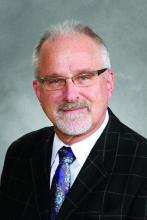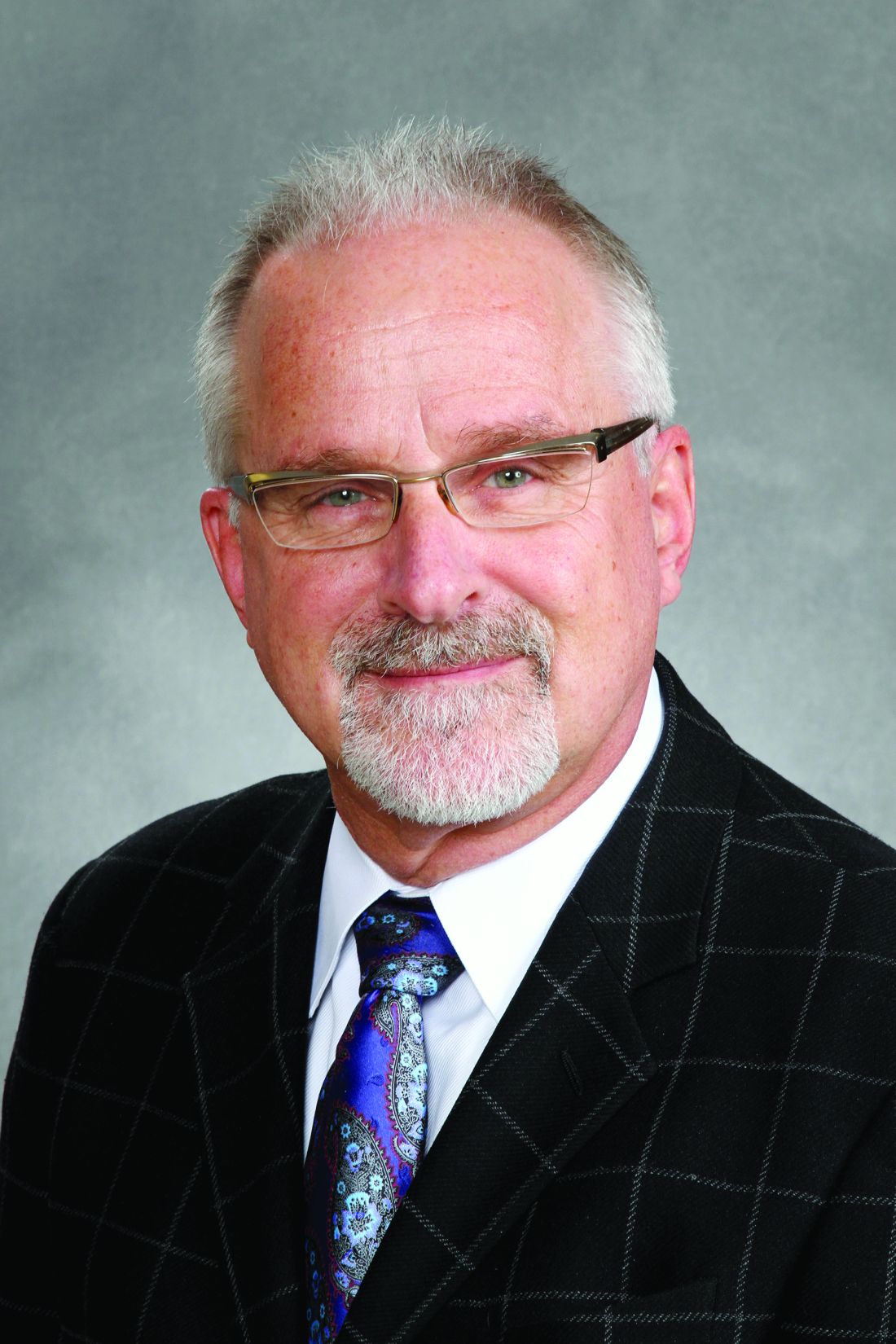User login
Gastroenterologists need to get on board with assuming risk through the adoption of advanced alternative payment methods under Medicare’s new Quality Payment Program or risk losing money through the commoditization of their services.
That’s the message Lawrence Kosinski, MD, of the Illinois Gastroenterology Group, has for his fellow gastroenterologists.
“To me, MIPS [Merit-based Incentive Payment System] is just an extension of what we were doing with PQRS and meaningful use, value-based modifiers,” Dr. Kosinski, who serves as practice councillor on the AGA Governing Board, said in an interview in advance of his presentation at the 2017 AGA Tech Summit sponsored by the AGA Center for GI Innovation and Technology.
If gastroenterologists choose to stay on that path rather than accept the two-sided risk of following the APM track of the Quality Payment Program, “you are going to have commoditized services and you are going to just make less money and work for somebody else. But if you want to be in control of your own future, we have to strive to work in [the APM] direction.”
To get there, the culture of gastroenterology will need to shift.
“Our culture right now is one where we get paid for making widgets,” he said. “And the more widgets we make, the more money we make. The more colonoscopies we do, the more money we make. The more we can charge for those colonoscopies and get collected, the better things are for us.”
The future could allow gastroenterologists to charge for more and different services, he added.
“A lot of people are working to replace colonoscopies with much less expensive alternative,” Dr. Kosinski said. “So where does a gastroenterologist have a competitive advantage? It’s in the knowledge of these complex diseases that are running up the cost of health care. Over 80% of the cost of health care is for the management of chronic disease. We happen to have a very expensive set of chronic diseases that we take care of in GI, very complicated illnesses. We need to leverage that. We need to leverage the management of those patients, but we need to be able to show how our work decreases the overall cost of care so that we can get a piece of that risk premium.”
He warned: “If we don’t do that, we’re just going to be commoditized proceduralists.”
And the upside will be better reimbursements for doctors and lower overall costs for health systems.
“We may be able to increase our own reimbursement as long as we are critical in lowering the overall cost of care for the entire population,” he said.
To that end, “well-managed GI practices should be able to develop a competitive advantage in a value space to be able to supply the needed services,” he said, adding that “we’re going to have to provide value by improving quality through a focus on patient outcomes. We have to assure a new level of patient relationships and ultimately focus on lowering the cost of care for a population of patients.”
Gastroenterologists need to get on board with assuming risk through the adoption of advanced alternative payment methods under Medicare’s new Quality Payment Program or risk losing money through the commoditization of their services.
That’s the message Lawrence Kosinski, MD, of the Illinois Gastroenterology Group, has for his fellow gastroenterologists.
“To me, MIPS [Merit-based Incentive Payment System] is just an extension of what we were doing with PQRS and meaningful use, value-based modifiers,” Dr. Kosinski, who serves as practice councillor on the AGA Governing Board, said in an interview in advance of his presentation at the 2017 AGA Tech Summit sponsored by the AGA Center for GI Innovation and Technology.
If gastroenterologists choose to stay on that path rather than accept the two-sided risk of following the APM track of the Quality Payment Program, “you are going to have commoditized services and you are going to just make less money and work for somebody else. But if you want to be in control of your own future, we have to strive to work in [the APM] direction.”
To get there, the culture of gastroenterology will need to shift.
“Our culture right now is one where we get paid for making widgets,” he said. “And the more widgets we make, the more money we make. The more colonoscopies we do, the more money we make. The more we can charge for those colonoscopies and get collected, the better things are for us.”
The future could allow gastroenterologists to charge for more and different services, he added.
“A lot of people are working to replace colonoscopies with much less expensive alternative,” Dr. Kosinski said. “So where does a gastroenterologist have a competitive advantage? It’s in the knowledge of these complex diseases that are running up the cost of health care. Over 80% of the cost of health care is for the management of chronic disease. We happen to have a very expensive set of chronic diseases that we take care of in GI, very complicated illnesses. We need to leverage that. We need to leverage the management of those patients, but we need to be able to show how our work decreases the overall cost of care so that we can get a piece of that risk premium.”
He warned: “If we don’t do that, we’re just going to be commoditized proceduralists.”
And the upside will be better reimbursements for doctors and lower overall costs for health systems.
“We may be able to increase our own reimbursement as long as we are critical in lowering the overall cost of care for the entire population,” he said.
To that end, “well-managed GI practices should be able to develop a competitive advantage in a value space to be able to supply the needed services,” he said, adding that “we’re going to have to provide value by improving quality through a focus on patient outcomes. We have to assure a new level of patient relationships and ultimately focus on lowering the cost of care for a population of patients.”
Gastroenterologists need to get on board with assuming risk through the adoption of advanced alternative payment methods under Medicare’s new Quality Payment Program or risk losing money through the commoditization of their services.
That’s the message Lawrence Kosinski, MD, of the Illinois Gastroenterology Group, has for his fellow gastroenterologists.
“To me, MIPS [Merit-based Incentive Payment System] is just an extension of what we were doing with PQRS and meaningful use, value-based modifiers,” Dr. Kosinski, who serves as practice councillor on the AGA Governing Board, said in an interview in advance of his presentation at the 2017 AGA Tech Summit sponsored by the AGA Center for GI Innovation and Technology.
If gastroenterologists choose to stay on that path rather than accept the two-sided risk of following the APM track of the Quality Payment Program, “you are going to have commoditized services and you are going to just make less money and work for somebody else. But if you want to be in control of your own future, we have to strive to work in [the APM] direction.”
To get there, the culture of gastroenterology will need to shift.
“Our culture right now is one where we get paid for making widgets,” he said. “And the more widgets we make, the more money we make. The more colonoscopies we do, the more money we make. The more we can charge for those colonoscopies and get collected, the better things are for us.”
The future could allow gastroenterologists to charge for more and different services, he added.
“A lot of people are working to replace colonoscopies with much less expensive alternative,” Dr. Kosinski said. “So where does a gastroenterologist have a competitive advantage? It’s in the knowledge of these complex diseases that are running up the cost of health care. Over 80% of the cost of health care is for the management of chronic disease. We happen to have a very expensive set of chronic diseases that we take care of in GI, very complicated illnesses. We need to leverage that. We need to leverage the management of those patients, but we need to be able to show how our work decreases the overall cost of care so that we can get a piece of that risk premium.”
He warned: “If we don’t do that, we’re just going to be commoditized proceduralists.”
And the upside will be better reimbursements for doctors and lower overall costs for health systems.
“We may be able to increase our own reimbursement as long as we are critical in lowering the overall cost of care for the entire population,” he said.
To that end, “well-managed GI practices should be able to develop a competitive advantage in a value space to be able to supply the needed services,” he said, adding that “we’re going to have to provide value by improving quality through a focus on patient outcomes. We have to assure a new level of patient relationships and ultimately focus on lowering the cost of care for a population of patients.”

